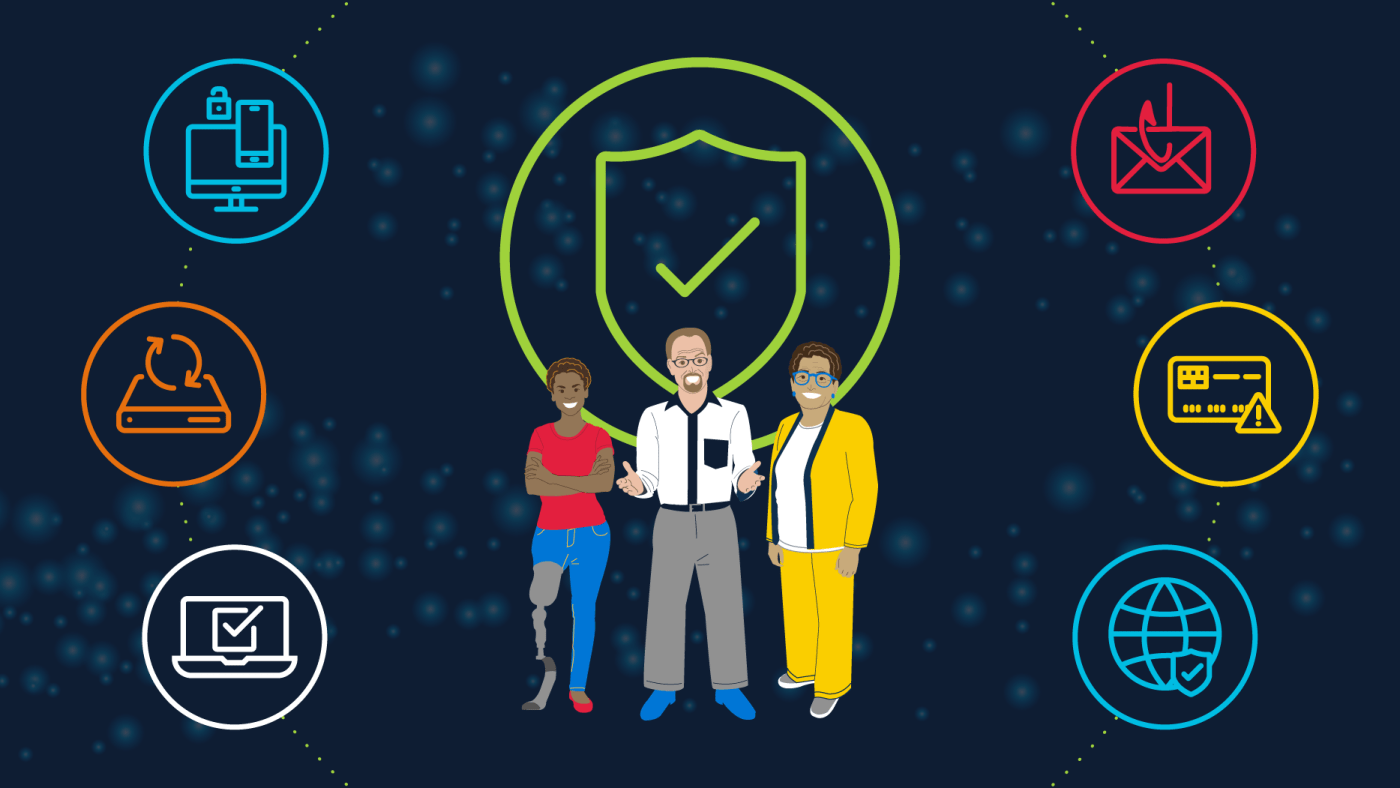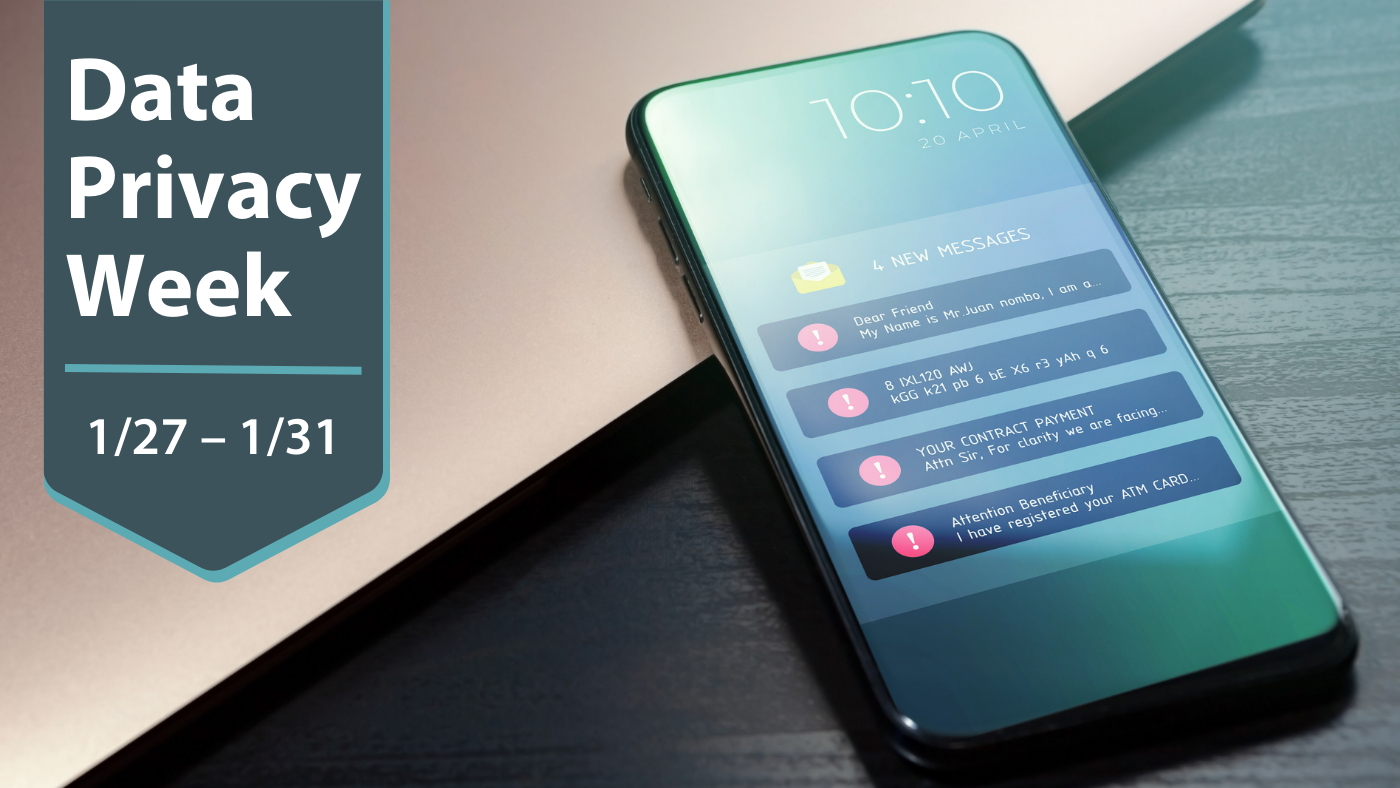The global cost of cybercrime topped $8 trillion in 2023—translating to over $250,000 a second worldwide—and is expected to rise to over $23.84 trillion by 2027. North America remains the most targeted for ransomware attacks, up 50% from 2022. Since 2020, the health sector alone has experienced a 45 percent increase in cyber-attacks.
Hackers are targeting health and data partners and Veterans with phishing to ransomware every day to steal data and wreak havoc on U.S. health care and other services. Veterans are often targeted by criminals attempting to fraudulently receive benefits or access valuable data.
Defending the galaxy of Veteran data
The defenders of Veteran online data include VA, Veterans, caregivers and family members. As the largest health care provider in the nation, VA:
- Uses automated tools and cybersecurity expertise to detect and thwart malicious cyber activity every day.
- Adheres to “Zero Trust” principles in that we assume our perimeter and network are always subject to assault and are vulnerable. Based on this assumption, we have multiple layers and tools in use to limit access and to rapidly detect, remediate and protect against any attack.
- In 2023, VA intercepted over one trillion potential security events and blocked nearly a billion malicious emails.
- Confirmed: 96 percent of VA staff use multi-factor authentication (MFA) to verify their identity before they can log in to VA systems—and only VA staff with a need to know (for delivering services) have access to Veteran data.
What you need to know to guard Veteran data
As Veterans, caregivers and family members, protect your personal data online by:
- Securing your information with multi-factor authentication: it’s easy to do!
- Being alert to and report phishing and smishing attempts.
- Encrypting your data using a VPN.
- Not saving your passwords to your browser.
- Regularly updating the software on your devices and computers; many updates include security protections against the latest threats.
- Avoiding using public Wi-Fi.
- Not clicking on unknown or unfamiliar attachments and links.
- Shopping only on legitimate, secure and trusted websites.
- Protecting your benefits against Payment Redirection Fraud.
- Deleting rarely used or unused applications and using a browser instead.
When it comes to protecting Veteran data online, it takes multiple defenders working side by side to guard the galaxy of Veteran information. Check out VA’s Cybersecurity Spot for the resources you need.
Topics in this story
More Stories
Online dating can be dangerous for Veterans, especially as romance scams become more prevalent.
During Data Privacy Week (Jan. 27 - 31), VA is sharing guidance on how Veterans and their beneficiaries can protect their data, especially Personally Identifiable Information (PII).
VA Privacy Service and Office of Information Security want to share with Veterans the importance of understanding privacy and security versus convenience and how to best protect their personal information.






My my, the VA is quick to pay fraudulent claims but drag their feet on legitimate claims. Who would have thought?
Not everyone uses or has cell phones either! Not everyone is able to use keyboards or computers as aging takes its toll on their mind and body. It’s already too difficult to actually TALK or CONVERSE with the VA or ‘agents’ in order to resolve issues or seek answers not covered in Q & A or FAQ forums. Forums, that’s another matter! Wait times are well beyond absurd on majority of phone calls attempted to web-published ‘help’ phone numbers.
Fix the core problem(s) with access to handle business, don’t create more by cloaking it as “security” measures making it increasingly more difficult to access our VA information and records!
Yes, the MyHealthVet signin web site, (https://www.myhealth.va.gov/web/myhealthevet/home) does not offer 2 step verification. So how is it you can push 2 step verification and you don’t even offer it!!!
Good information as always. Please keep me informed.
“Securing your information with multi-factor authentication: it’s easy to do!”
Maybe for you and those with the skills and devices but not so easy for some of us!!!